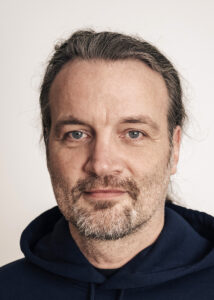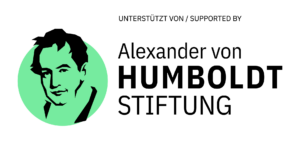Kristian Franze
JOB ALERT!
The Franze lab is hiring! We are looking for a lab manager to take care of our wet labs. Learn more about this vacancy here. Application deadline: 30/04/2025
Welcome to the Franze Lab

Key aspects in the development of the central nervous system (CNS) include the formation of neuronal axons, their subsequent growth and guidance through thick layers of nervous tissue, and the folding of the brain. All these processes involve motion and must thus be driven by forces. However, while our understanding of the biochemical and molecular control of these processes is increasing rapidly, the contribution of mechanics remains poorly understood.
Cell motion is also crucially involved in CNS pathologies such as foreign body reactions, in which activated glial cells migrate towards and encapsulate implants (e.g., electrodes), and the failing regeneration of neurons after CNS (e.g., spinal cord) injuries. Repair can currently not be promoted. So far, research has – without any major breakthrough – mainly focused on chemical signals impeding and promoting neuronal (re)growth.
We are taking a different, interdisciplinary approach and investigate how cellular forces, local cell and tissue compliance and cellular mechanosensitivity contribute to CNS development and disease. Methods we are exploiting include atomic force microscopy, traction force microscopy, custom-built simple and complex compliant cell culture substrates, optical microscopy including confocal laser scanning microscopy and cell biological techniques. We have shown, for example, that nervous tissue is mechanically highly heterogeneous. Furthermore, we found that neurons constantly exert forces on their environment and that both neurons and glial cells respond to mechanical cues such as tissue stiffness. Understanding how and when CNS cells actively exert forces and respond to their mechanical environment will shed new light on CNS development, and it could eventually lead to novel biomedical approaches to treat or circumvent pathologies that involve mechanical signalling.
Jakobs MAH, Zemel A, Franze K: Unrestrained growth of correctly oriented microtubules instructs axonal microtubule orientation. Elife 11:e77608 (2022)
Rheinlaender J, Dimitracopoulos A, Wallmeyer B, Kronenberg NM, Chalut KJ, Gather MC, Betz T, Charras G, Franze K: Cortical cell stiffness is independent of substrate mechanics. Nature Materials 19:1019–1025 (2020)
Thompson AJ, Pillai EK, Dimov IB, Foster SK, Holt CE, Franze K: Rapid changes in tissue mechanics regulate cell behaviour in the developing embryonic brain. Elife 8:e39356 (2019)
Jakobs MAH, Dimitracopoulos A, Franze K: KymoButler, a deep learning software for automated kymograph analysis. Elife 8:e42288 (2019)
Barriga EH, Franze K, Charras G, Mayor R: Tissue stiffening coordinates morphogenesis by triggering collective cell migration in vivo. Nature 554:523–527 (2018)
Moeendarbary E, Weber IP, Sheridan GK, Koser DE, Solemane S, Haenzie B, Bradbury EJ, Fawcett J, Franze K: The soft mechanical signature of glial scars in the central nervous system. Nature Communications 8:14787 (2017)
Koser DE, Thompson AJ, Foster SK, Dwivedy A, Pillai EK, Sheridan GK, Svoboda H, Viana M, Costa LdF, Guck J, Holt CE, Franze K: Mechanosensing is critical for axon growth in the developing brain. Nature Neuroscience 19(12):1592-1598 (2016)
Hardie RC, Franze K: Photomechanical responses in Drosophila photoreceptors. Science338(6104):260-263 (2012)
Franze K, Grosche J, Skatchkov SN, Schinkinger S, Foja C, Schild D, Uckermann O, Travis K, Reichenbach A, Guck J: Muller cells are living optical fibers in the vertebrate retina. PNAS 104(20):8287-8292 (2007)
